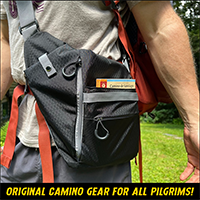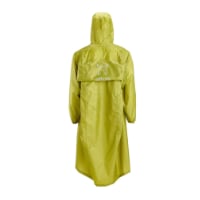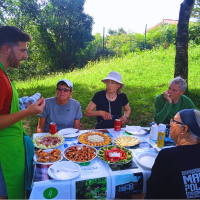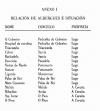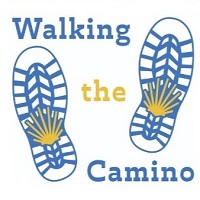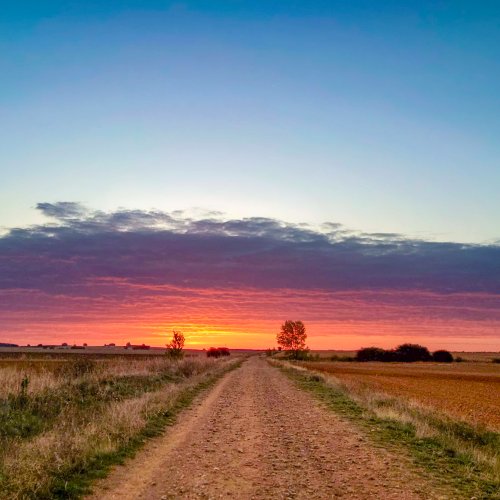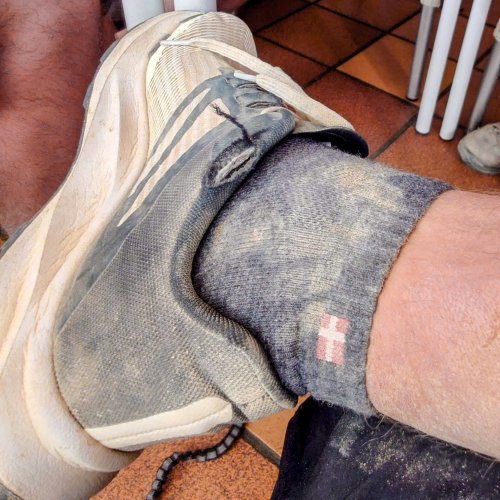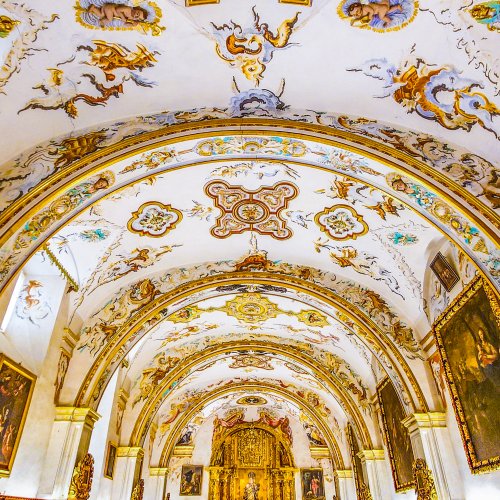- Time of past OR future Camino
- First: Camino Francés 2002; most recent: Norte/Primitivo 2019
This has been in the works for a bit, but I received the formal announcement this morning:
Dear Sir/Madam:
We are writing to inform you of the recent creation of the ATJ (Spanish acronym standing for Acogida Tradicional Jacobea), our NATIONAL ASSOCIATION OF TRADITIONAL JACOBEAN WELCOME SPACES ON THE CAMINOS DE SANTIAGO.
Sadly, we are now witnessing the Camino becoming a tourist route, removed from its original spiritual purpose. Given the tendency for commercialisation, the lack of understanding in some administrations, and tourists under the guise of pilgrims using our spaces that may should go to other establishments, we have joined forces to defend the traditional jacobean hospitality and promote a culture of responsible voluntary contribution (a term that appeals directly to the ethics of the pilgrim and replaces the misunderstood “donation”), allowing these spaces to be kept open in a sustainable way.
Traditional hospitality is the ultimate expression of Jacobean culture, the support for pilgrimages from the 9th century to the present day. Given its extraordinary preservation and the values it promotes, it has been recognised by the Spain’s Historical Heritage Council as a Representative Example of the Intangible Cultural Heritage of Spain (pending official publication), an essential preliminary step for its recognition by UNESCO as Intangible Cultural Heritage of Humanity.
Our association brings together spaces that provide non-profit care to pilgrims, some of which you probably know under other names (donation-based hostel, open house, albergue, etc.). The initiative started on the Camino del Norte and the Camino Primitivo, but it is open to all other Caminos.
We call ourselves “spaces” because our facilities are diverse, but we are united by some common characteristics: our commitment to pilgrimage, our desire to support pilgrims for spiritual reasons and human solidarity, our warm welcome and, above all, features that differentiate us entirely from other initiatives linked to the Camino: welcoming pilgrims in exchange for the aforementioned responsible voluntary contribution used to cover expenses and keep the spaces open, our exclusive orientation toward pilgrims (not tourists) and our openness without discrimination to those making the pilgrimage to Santiago who lack economic resources.
Considering the important work that you carry out in the communication of information about the Camino de Santiago, we have attached to this email a text that explains the concepts of Traditional Jacobean Hospitality and responsible voluntary contribution. The inclusion of this text in your printed and/or virtual guide would greatly help to maintain the genuine Jacobean culture and, in particular, this type of welcome, so historically linked to the Camino.
We take this opportunity to send you the latest updated list of existing ATJ Spaces on the Camino del Norte and the Primitivo. We have also attached the logo of our association. It is our intention to place this logo at the entrance of the associated spaces so that they can be easily identified by pilgrims.
As always, we are at your disposal for any additional information you may require. We are currently using this email address, but in the near future we will send you a new one that will be created for the exclusive use of the ATJ association.
We appreciate your attention and look forward to hearing from you.
NATIONAL ASSOCIATION OF TRADITIONAL JACOBEAN HOSPITALITY SPACES ON THE CAMINOS DE SANTIAGO (ATJ).
------------------
And here is the accompanying list of ATJ places on the Norte and Primitivo:
Dear Sir/Madam:
We are writing to inform you of the recent creation of the ATJ (Spanish acronym standing for Acogida Tradicional Jacobea), our NATIONAL ASSOCIATION OF TRADITIONAL JACOBEAN WELCOME SPACES ON THE CAMINOS DE SANTIAGO.
Sadly, we are now witnessing the Camino becoming a tourist route, removed from its original spiritual purpose. Given the tendency for commercialisation, the lack of understanding in some administrations, and tourists under the guise of pilgrims using our spaces that may should go to other establishments, we have joined forces to defend the traditional jacobean hospitality and promote a culture of responsible voluntary contribution (a term that appeals directly to the ethics of the pilgrim and replaces the misunderstood “donation”), allowing these spaces to be kept open in a sustainable way.
Traditional hospitality is the ultimate expression of Jacobean culture, the support for pilgrimages from the 9th century to the present day. Given its extraordinary preservation and the values it promotes, it has been recognised by the Spain’s Historical Heritage Council as a Representative Example of the Intangible Cultural Heritage of Spain (pending official publication), an essential preliminary step for its recognition by UNESCO as Intangible Cultural Heritage of Humanity.
Our association brings together spaces that provide non-profit care to pilgrims, some of which you probably know under other names (donation-based hostel, open house, albergue, etc.). The initiative started on the Camino del Norte and the Camino Primitivo, but it is open to all other Caminos.
We call ourselves “spaces” because our facilities are diverse, but we are united by some common characteristics: our commitment to pilgrimage, our desire to support pilgrims for spiritual reasons and human solidarity, our warm welcome and, above all, features that differentiate us entirely from other initiatives linked to the Camino: welcoming pilgrims in exchange for the aforementioned responsible voluntary contribution used to cover expenses and keep the spaces open, our exclusive orientation toward pilgrims (not tourists) and our openness without discrimination to those making the pilgrimage to Santiago who lack economic resources.
Considering the important work that you carry out in the communication of information about the Camino de Santiago, we have attached to this email a text that explains the concepts of Traditional Jacobean Hospitality and responsible voluntary contribution. The inclusion of this text in your printed and/or virtual guide would greatly help to maintain the genuine Jacobean culture and, in particular, this type of welcome, so historically linked to the Camino.
We take this opportunity to send you the latest updated list of existing ATJ Spaces on the Camino del Norte and the Primitivo. We have also attached the logo of our association. It is our intention to place this logo at the entrance of the associated spaces so that they can be easily identified by pilgrims.
As always, we are at your disposal for any additional information you may require. We are currently using this email address, but in the near future we will send you a new one that will be created for the exclusive use of the ATJ association.
We appreciate your attention and look forward to hearing from you.
NATIONAL ASSOCIATION OF TRADITIONAL JACOBEAN HOSPITALITY SPACES ON THE CAMINOS DE SANTIAGO (ATJ).
------------------
And here is the accompanying list of ATJ places on the Norte and Primitivo:
CAMINO DEL NORTE
Tu Camino
Ontón
María José
+34 645985269
Cabaña del Abuelo Peuto
Güemes
Ernesto
+34 942 621122
Izarra
Caborredondo
Giulia
+34 689622344
Aves de Paso
Pendueles
Anna
+34 676620094
Duesos
Caravia
Marisol y José Luís
+34 611688162
La Llamarga
Tornón
Se abrirá en abril y hasta entonces no hay teléfono
La Casa de Montse
Carda
Montse
+34 651068840
La Ferrería (Closed and relocating)
Amandi
Sergio
+34 646516846
San Martín
San Martín de Laspra
María
+34 611570284
La Reguera
Soto de Luiña
Elena y Jacin
+34 630777409
Refugio La Lionesa
La Candanosa de Muñas
Andreas
+34 655596486
La Casa del Peregrino
Otur
Mercedes
+34 627887507
Granja de Calor
Villamartín Pequeño
Freddy y Nicole
+34 622413708
Triskel
Lourenzá
Ana
+34 696570192
O Bisonte de Maariz
Maariz, Mondoñedo
Karmela
+34 626766235
CAMINO PRIMITIVO
El Güertu
Colloto
Meri
+34 698949746
Villa de Grado
Grado
Voluntarios
+34 985 752766
Casita Mandala
San Marcelo
Patrick
+34 613014607
Roca Madre
La Rodriga
Irene y Diego
+34 638176862
Fontenonaya
Porciles
Nicolás
+34 653247007
Albergue de Bodenaya
Bodenaya
Allison y Alberto
+34 645888984
El Cruce
La Espina
Carmen
+34 639365210
Casa Pascual nº8
El Espín
Silvia
+34 606242097
Polagrino
Pola de Allande
Stef
+31 616100701





